ESCAPE
Finnish and klaar: Finland’s capital Helsinki has the final word in poetic finesse
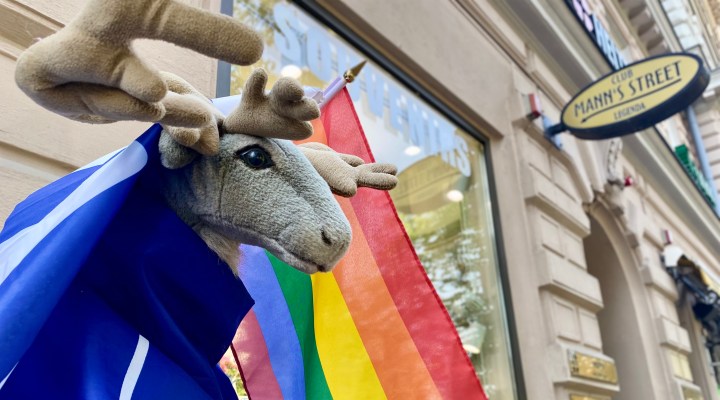
As it celebrated Independence Day this week, Tiara Walters reflects on Finland’s bewildering achievements in orderliness since gaining autonomy 106 years ago. And its citizens’ skills at being content.
Despite braving the horrors of several wars with the Soviet Union since breaking away on 6 December, 1917 — an anniversary that Finns marked this week — it is no small wonder that this nation is one of the world’s more equal, green and prosperous societies.
One could argue, for instance, that even the pigeons in Helsinki manage to avoid jaywalking, reflecting the capital’s reputation for orderliness.
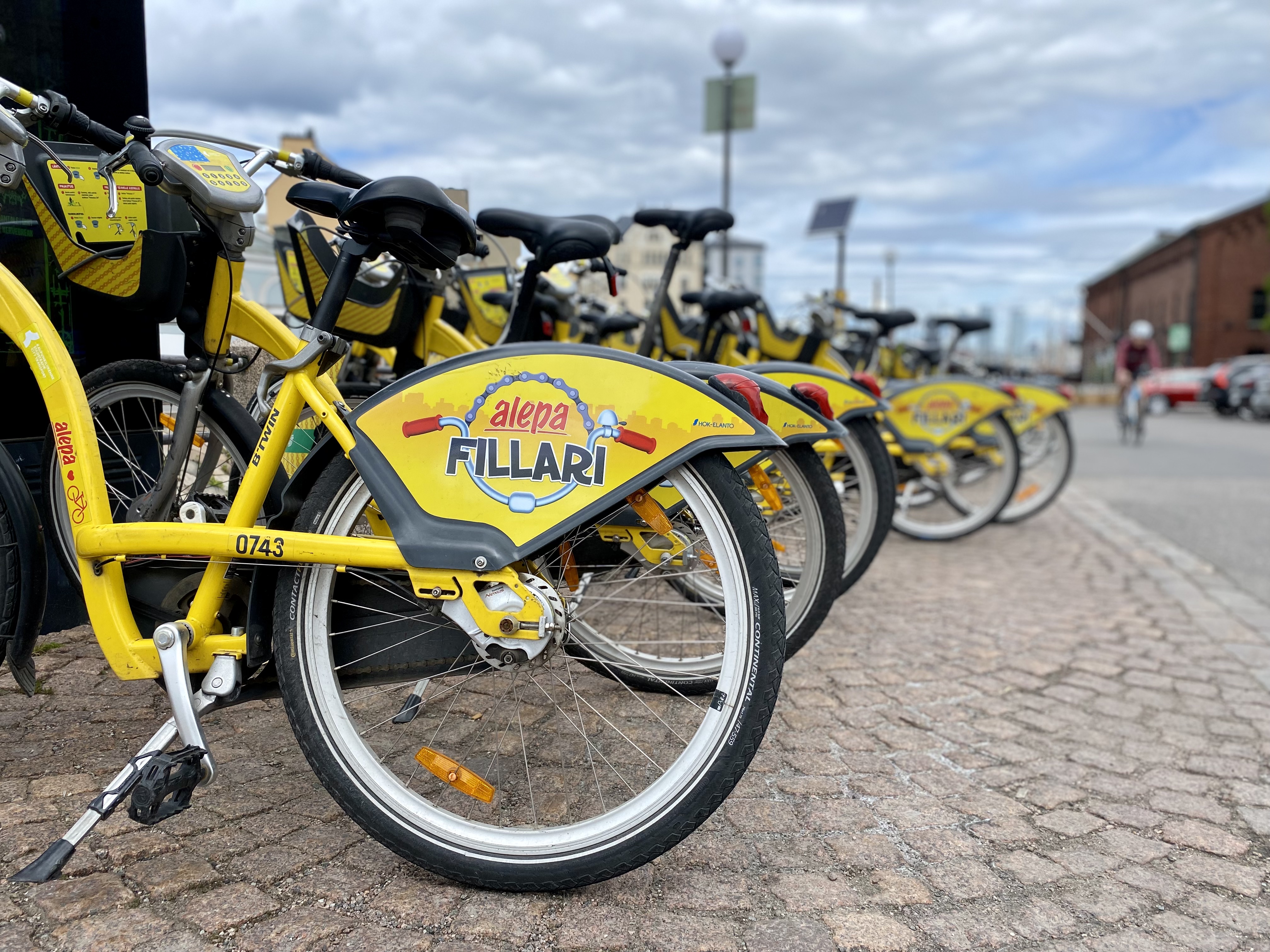
Lines of bicycles, neatly lined up, are positioned throughout the capital. (Photo: Tiara Walters)
According to Finnish folklore, “sisu” represents this social liberal democracy’s stoic Nordic character.
“It’s not cold-water swimming,” a waiter quipped at Allas Sea Pool on the waterfront, “unless you have to cut the ice to get in”.
In this part of the Arctic (“Suomi” if you’re local), each of Finland’s 5.6 million inhabitants has, theoretically, 60km² of space scattered across a 340,000km² expanse. Conversations are hushed and small talk is as common as a Finnish introvert belting out karaoke classics.
Eggs are hard-boiled for 251 minutes, and attempts at getting them soft-poached will leave you Finnish and klaar. (For dippy oeufs, just go to Bardot, a French bistro on Pohjoisesplanadi, in the heart of the tourist centre.)
Apart from the odd provoked server — you are advised to look out for “wait to be seated” signs even in coffee shops — I found most Finns so poised that poetic justice seemed to be their coup de grâce.
One morning, I pointed out to the hotel reception that I wouldn’t be paying their R3,319,58 bill to throw a humble pile of underwear into a washing machine. Admittedly, it was I who had misunderstood the process, but I sauntered off to breakfast to let them brood over it, regardless. When I returned, I learnt from the manager that I had dropped some of my frilly intimates on the floor while gesticulating over the receipt — and here, she added, they were nicely wrapped up in a bag just for me.
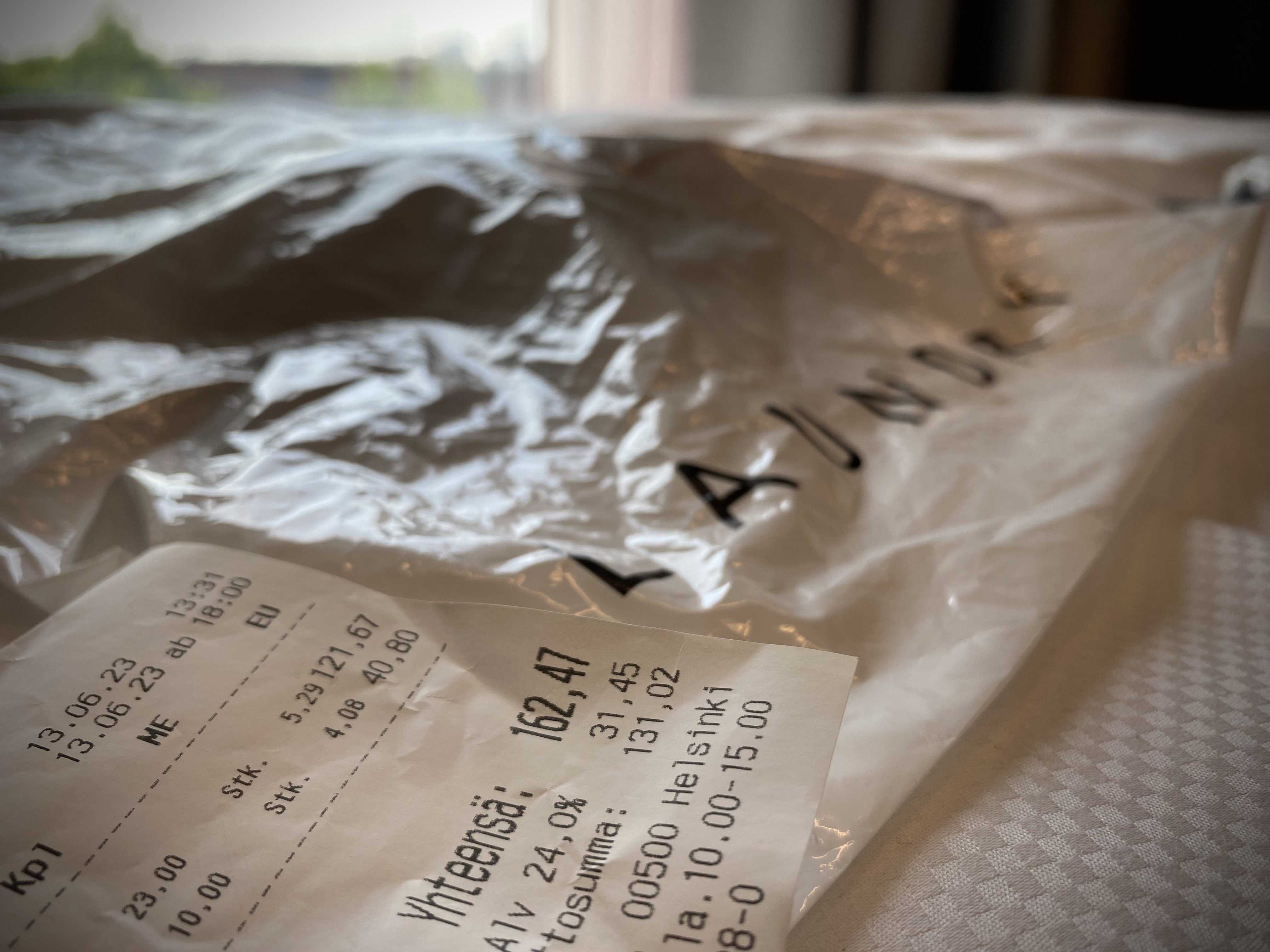
The offending laundry bill of R3319,58, later waived by the hotel. (Photo: Tiara Walters)
While on the subject of the hotel reception desk: upon arrival, don’t instantly complain about the construction site right next to your room where you also have to work. As it turns out, Finnish construction crews operate in a parallel dimension where there literally is no sound.
As spellbinding as this silent movie was at times, I was never going to be able to WhatsApp my editor with the excuse that I could not concentrate because Helsinki’s construction workers were out of control.
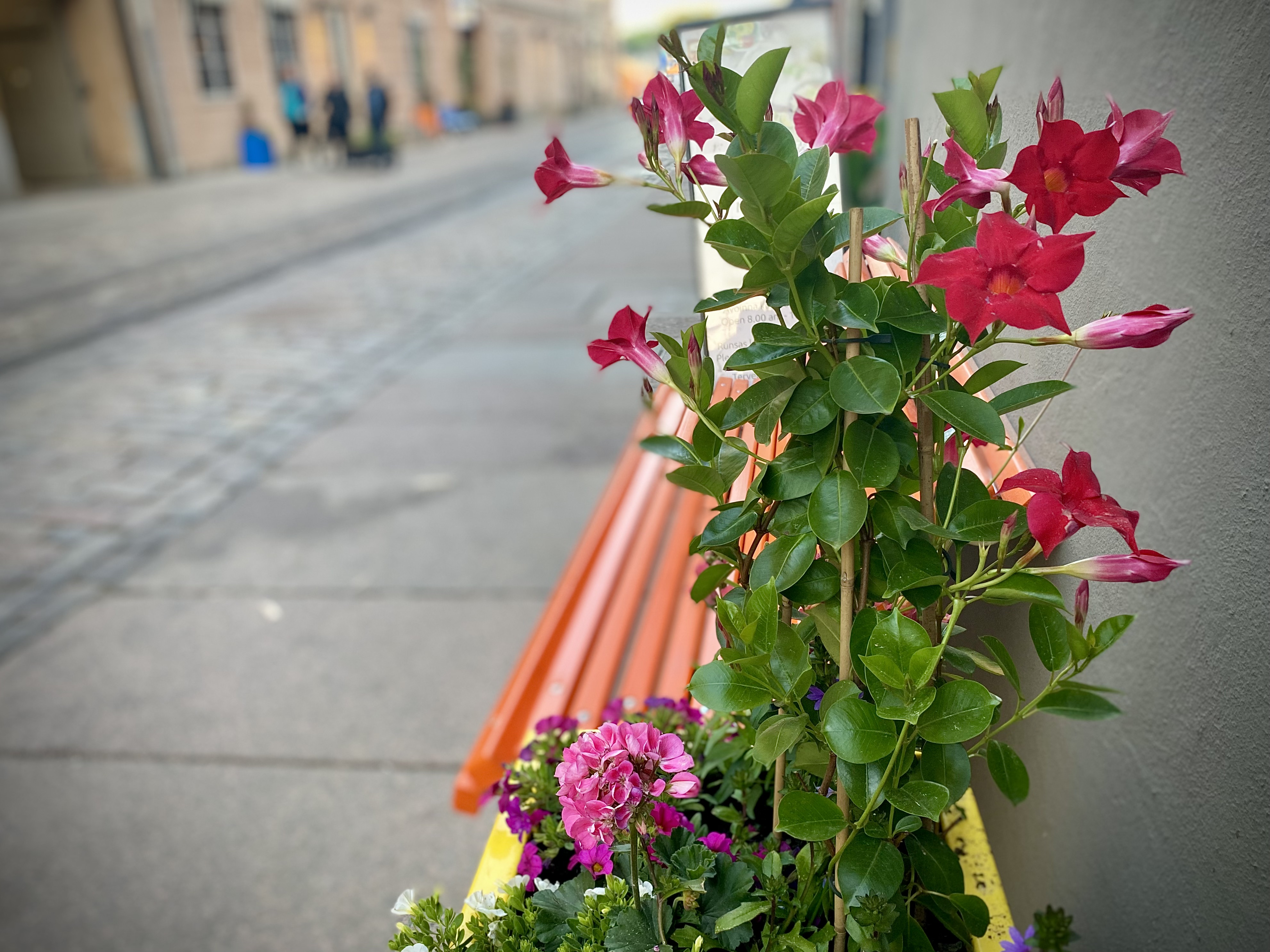
In summer, the streets of Helsinki are a celebration of floral displays. (Photo: Tiara Walters)
Beyond the stereotypes
Having a natural aversion for heat that is not accompanied by a thunderstorm, I avoided saunas like the plague.
Yet, I would argue there is much more to the quintessential Finnish experience than Moomin, steam rooms and even “order tourism”. That is, the voyeuristic act of marvelling at functional societies when one hails from a homeland fraught with corruption, load shedding and jaywalkers.
The little I managed to see of the city while meeting article deadlines yielded a jack-in-the-box of Roald Dahl surprises. At the height of summer, the Finnish capital is a dream of quirk and colour, a Wes Anderson film set animated by the wild and clear midnight sun.
My late mother Adèle and I share our 12th June birthday with Helsinki Day. And during a work break, I stumbled across the Finnish military band, who serenaded me with a serendipitous rendition of one of our favourite dancing ditties — Oh, when the saints go marching in.
Fun fact — Finns love to tango so much the country has one of the highest per capita densities of tango clubs in the world. (Reportedly introduced in 1913 by Finnish ballet dancer Toivo Niskanen.)
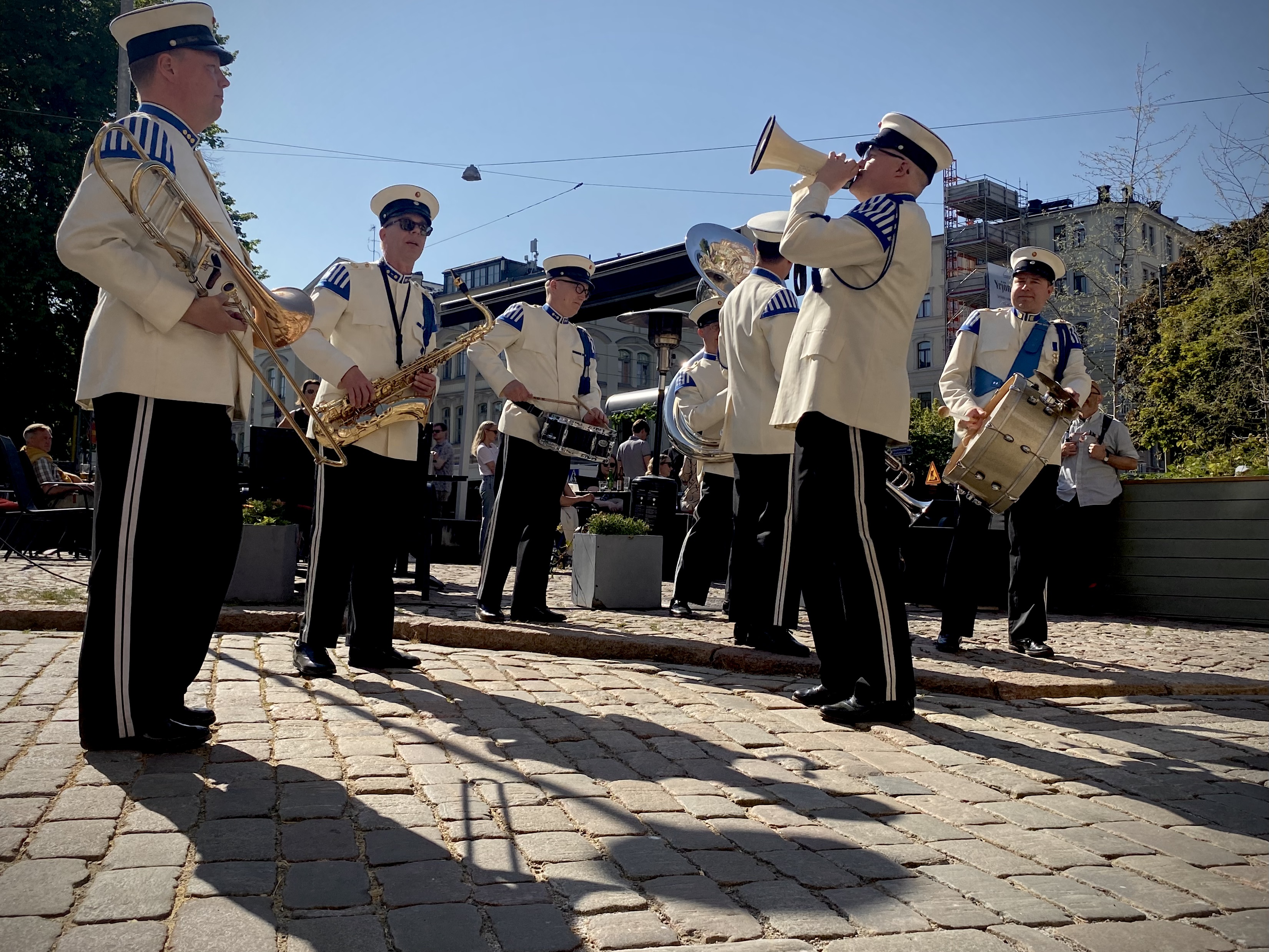
The Finnish military band on Helsinki Day, marked on 12 June, plays a toe-tapping version of ‘Oh, when the saints go marching in’. (Photo: Tiara Walters)
‘Okaisenoikeudet’ or Everyman’s Rights
As a business traveller moving about solo, I found it hard to imagine feeling safer than exploring Helsinki’s botanical gardens, parks and forests, where a concept called “Okaisenoikeudet” or “Everyman’s Rights” gives anyone the freedom to explore anyone’s forest without asking their permission.
The only condition? Tread lightly and respect the privacy of others.
Off the tourist track some 3km north of the city centre, I exercised my right to Okaisenoikeudet by visiting the city’s oldest allotment garden on original land: Brunakärr Koloniträdgård (Swedish for “brown marsh colony garden”).
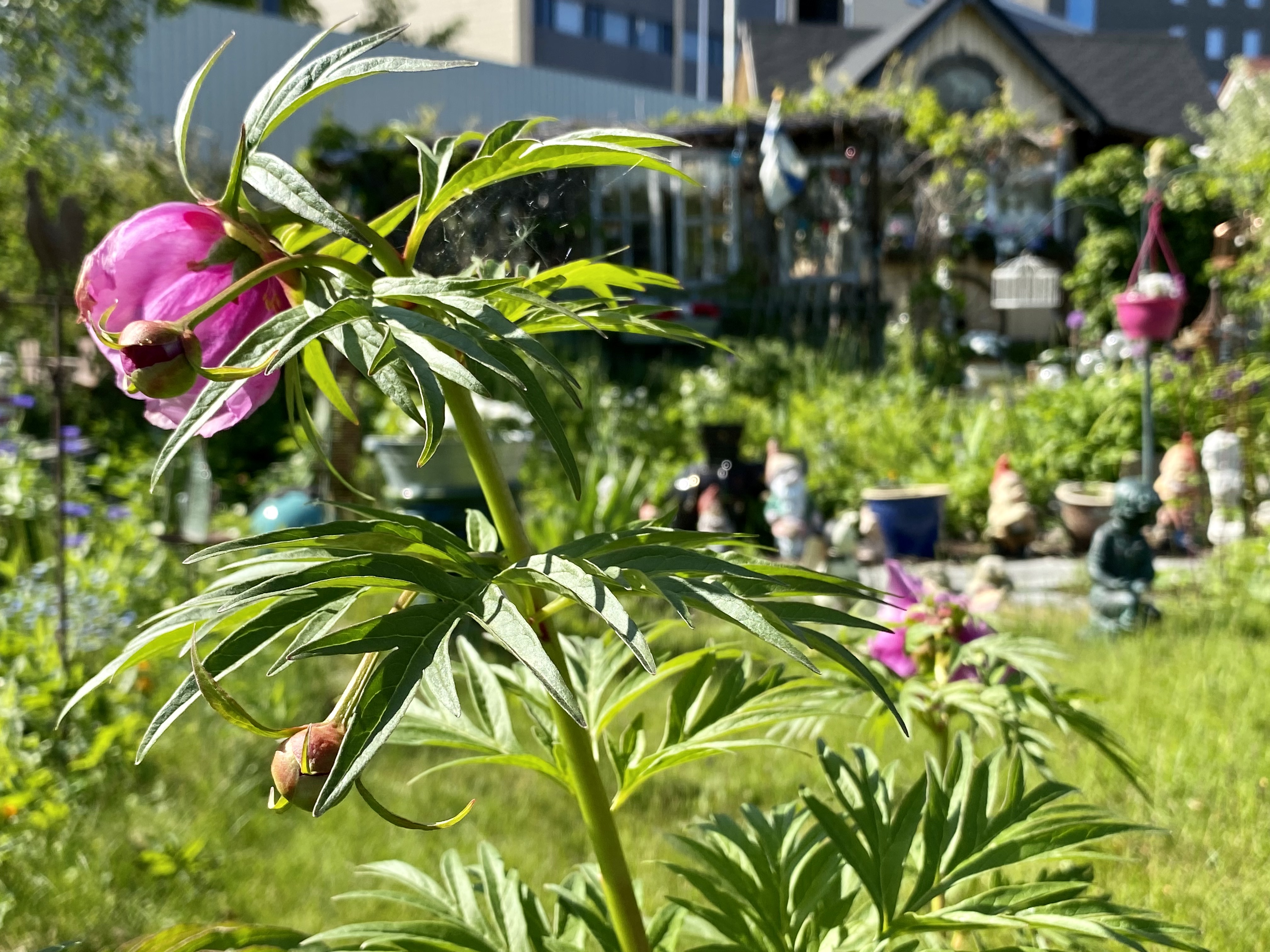
Brunakärr Koloniträdgård, the converted swampland that serves as Finland’s oldest allotment garden, at the height of the 2023 European summer in June. (Photo: Tiara Walters)
Blink, and you’ll miss it. Hemmed in by the city’s bus depot, a residential area, office buildings, my hotel and the capital’s main boulevard, the allotment garden is a true rabbit hole that will enchant anyone with a penchant for seeking out the world as Lewis Carroll saw it.
The Swedish-initiated community sanctuary was established in 1918 and unfurls its magic along buckling paths that connect about 115 tightly-spaced, tiny cabins. The smallest house? Only 9m².
Here, the traveller’s soul can water itself with human connection by osmosis, simply by tracing the maze of walkways and listening to the sounds of Saturday laughter and of families tending to their gardens.
Read more in Daily Maverick: A hustle here and a hustle there — how things work (maybe) in Cuba
The summer weekend respite is as old as Finnish independence itself and, as a converted swamp, feels like a good metaphor for the country’s rags-to-wealth successes over the past century or so.
The prized original apple trees, still standing, bridge the past and the present. Vegetables and roots hold their ground, yet yield to the allure of newcomer summer flowers and lawns.
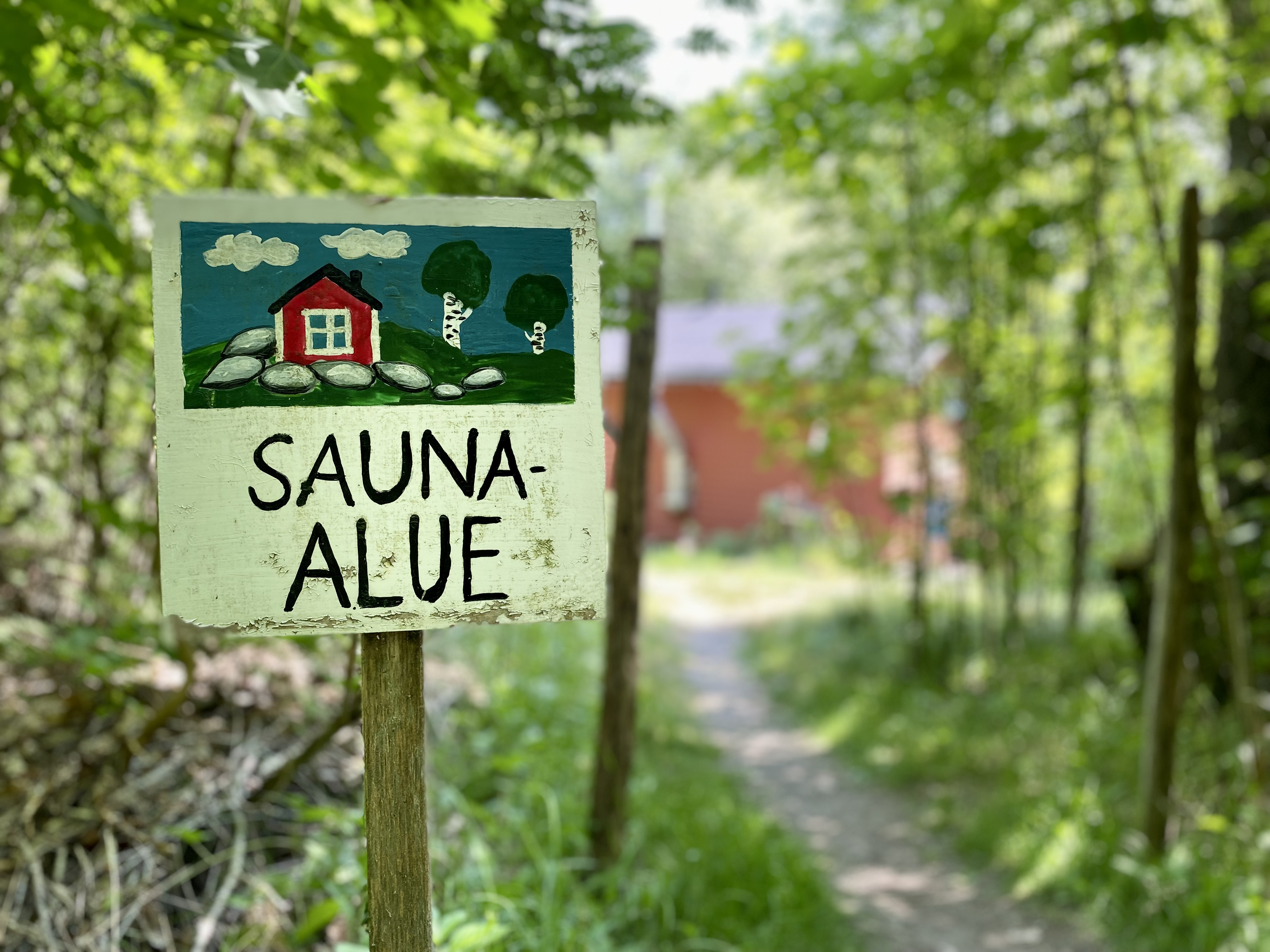
A sauna in Lammassaari forest. (Photo: Tiara Walters)
‘Hei’
In Lammassaari forest at Vanhankaupunginlahti bay— in plain English, that’s a wetland on the city’s ocean-facing edge — I hugged the Koitto abstinence society’s 120-year-old forest cabin, and took in the aromas of its cracked and weathered wood.
And, while I dipped in surprisingly warm Arctic waters, a flock of wild geese skidded into land, honking my place in the family of things (with apologies to Mary Oliver).
During a morning spent in a forest next to the wetland, I saw only a few human locals.
One was a squat and otherworldly woman, perhaps a summer cabin resident, emerging behind the pines and struggling up the dark forest path.
Her Arctic-blue eyes and etched face were a library, but I could not bear to intrude on her privacy to ask for her story.
So, with a simple “Hei” we acknowledged each other’s existence and, like reindeer passing in the night, pushed on separately, destined not to cross paths again.
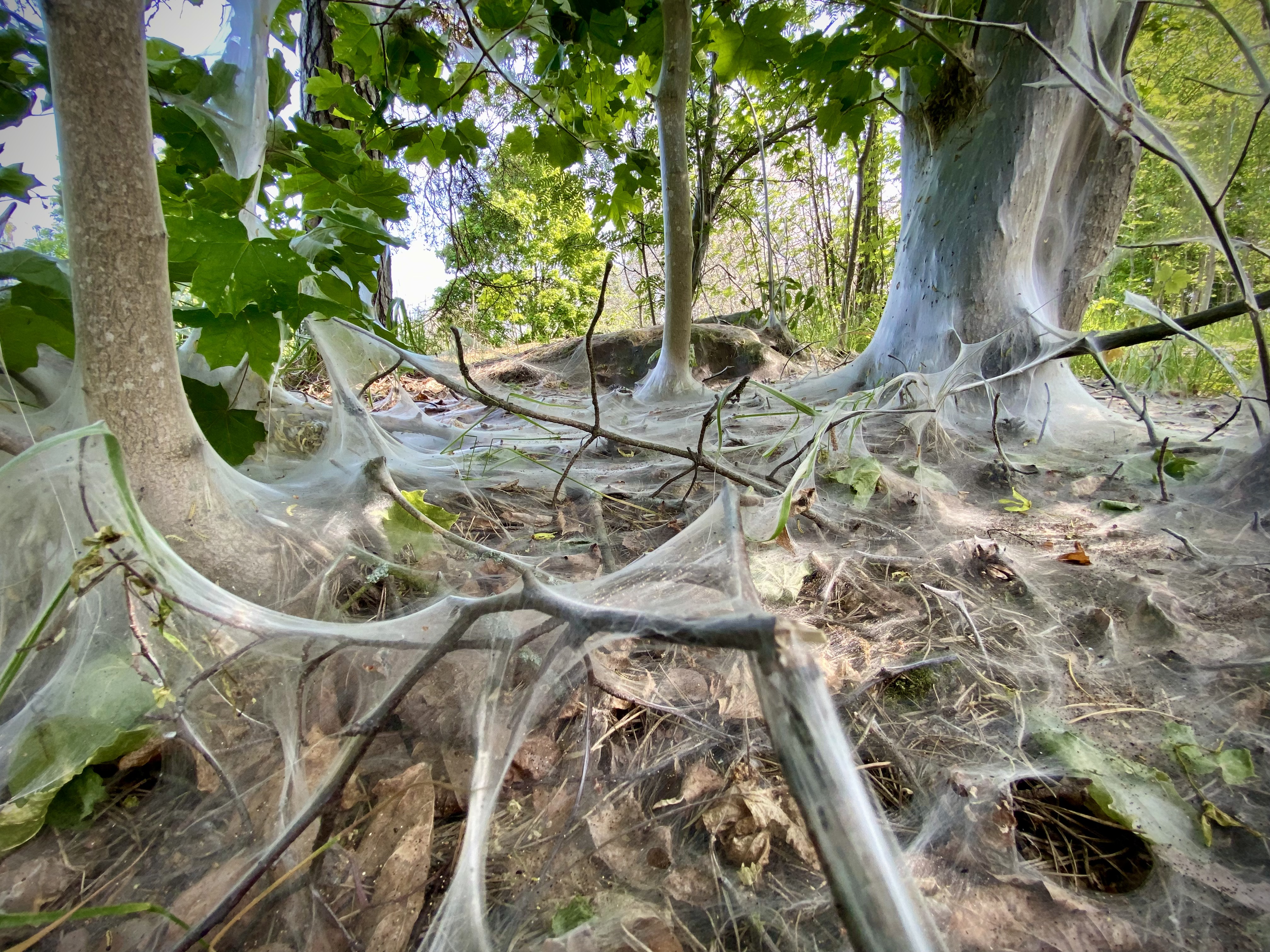
Cobwebs cover the forest floor and connect the forest trees of Lammassaari. (Photo: Tiara Walters)
Deceptively effortless
Although it is not within the scope of this article to trot out all Suomi’s problems, it certainly has them.
About 30% of ever-partnered women between the ages of 18 and 74 may experience domestic violence. As the crow flies, the Russian border, currently closed to stem the flow of asylum seekers, is just 160km or so from the Finnish capital (but not an advised route under present circumstances).
For the most part, however, life in this land of reindeers and a thousand lakes can – at least in the warmer summer months – seem so effortless. It’s easy to get envious and assume this is the way it’s always been.
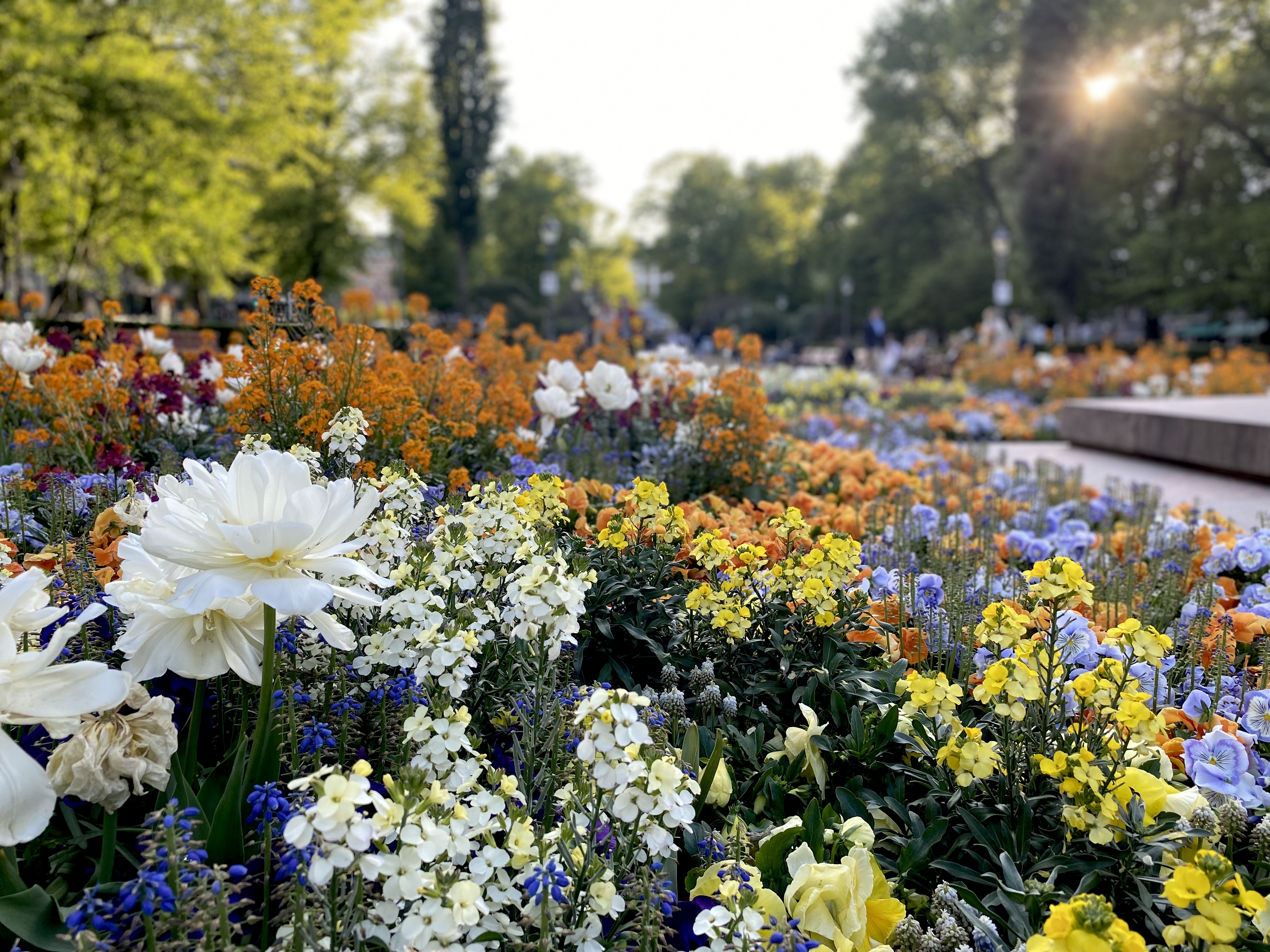
The North Esplanade park in central Helsinki, awash in the golden light of the Arctic midnight sun. (Photo: Tiara Walters)
Jared Diamond’s Upheaval (2019) vividly recounts how Finland, a young and impoverished nation then, lost tens of thousands of fighters defending their independence against the Soviet Union during World War 2, with almost no external assistance.
About 100,000 Finns (2.5% of the population) died fighting off the much larger army of the Soviet Union, which had a population 50 times the size. That, Diamond says, would be the same as losing nine million Americans in a war today, almost 10 times the total of US deaths in all the wars of its 250-year history.
The historian’s reference to the Finns’ masterful soldiers on skis reminds of the Boer guerrilla fighters, known for their horseback skills and ability to outwit the British Empire’s better-resourced soldiers in the harsh Karoo hinterland during the South African wars.
And it takes just one listen to a stirring reading of the Kalevala, the epic Finnish poem, to get a sense of what pulses through the veins of these deceptively gentle people.
For more than a century, they have defined themselves, fiercely, strategically and steadfastly, Diamond argues, in opposition to their authoritarian eastern neighbour — with whom they share a border significantly longer than any other EU country.
Polls may today think of Finland as the “happiest” country on Earth, a quality that Finns define as contentment, but it is no happy accident. DM





I imagine a Finnish joke is “no laughing matter” in some ways similar to, but in many more unlike a German one.
Great article. I have heard many tales of Finnish society, and how toughthey are. I appreciate this article and it has inspired me to read up on the history of the Finns. Thanks.
I love Finland. Was there several times during the 1970s, while rifle shooting for the British team. Lots of fun memories like Tea Dances in the afternoon, locals defending their border with Russia with crossbows (!) and arguments on how to set up Canon and Nikon expensive cameras to capture the midnight sun over a lake, until one of our male team muttered “just set to cloudy day”. Beautiful people and happy days. Only bad thing- their mosquitoes are Rottweiler sized.